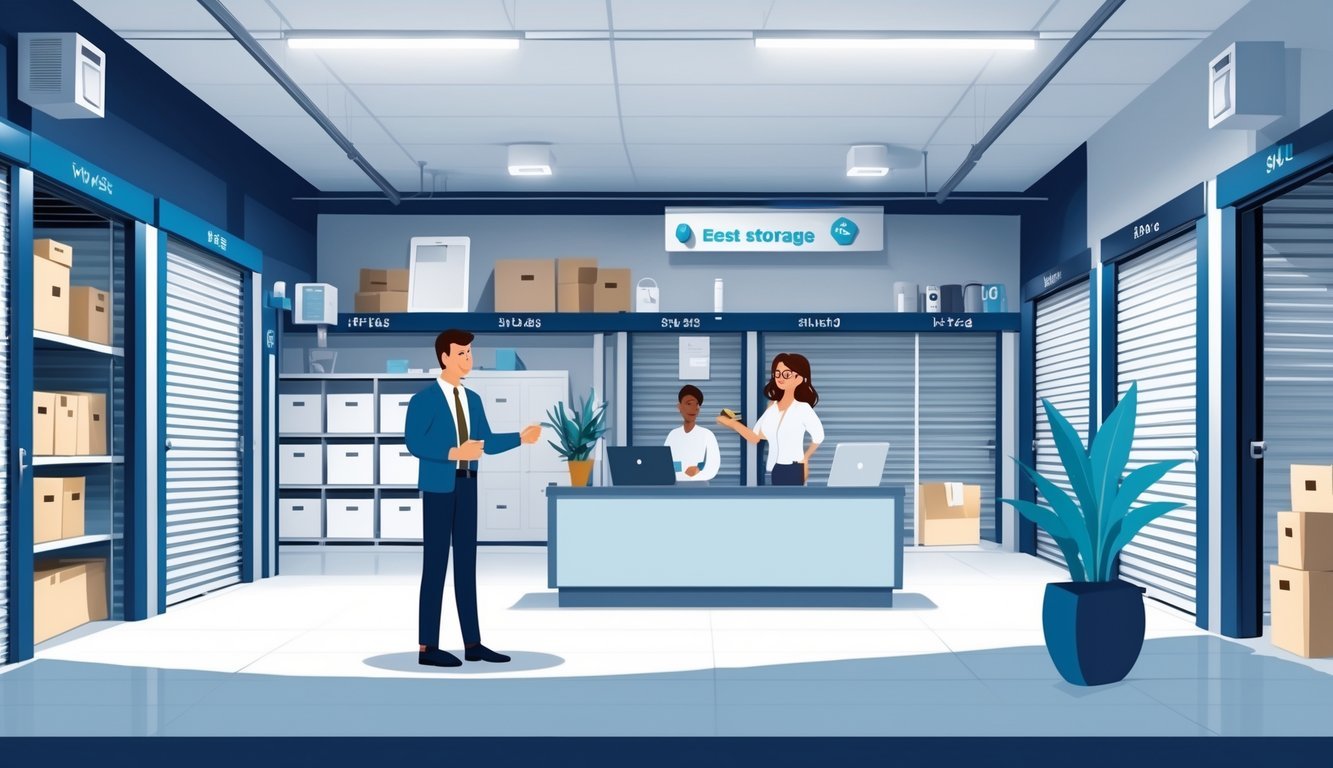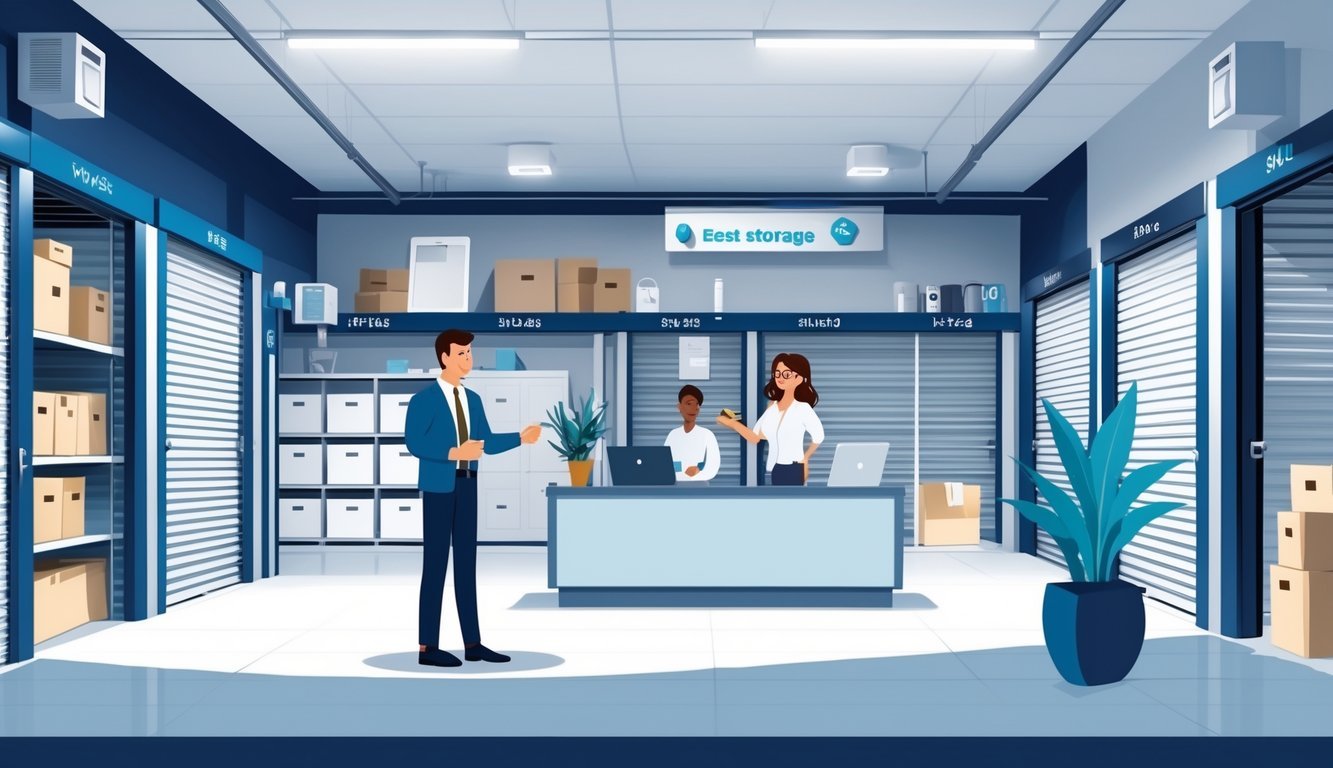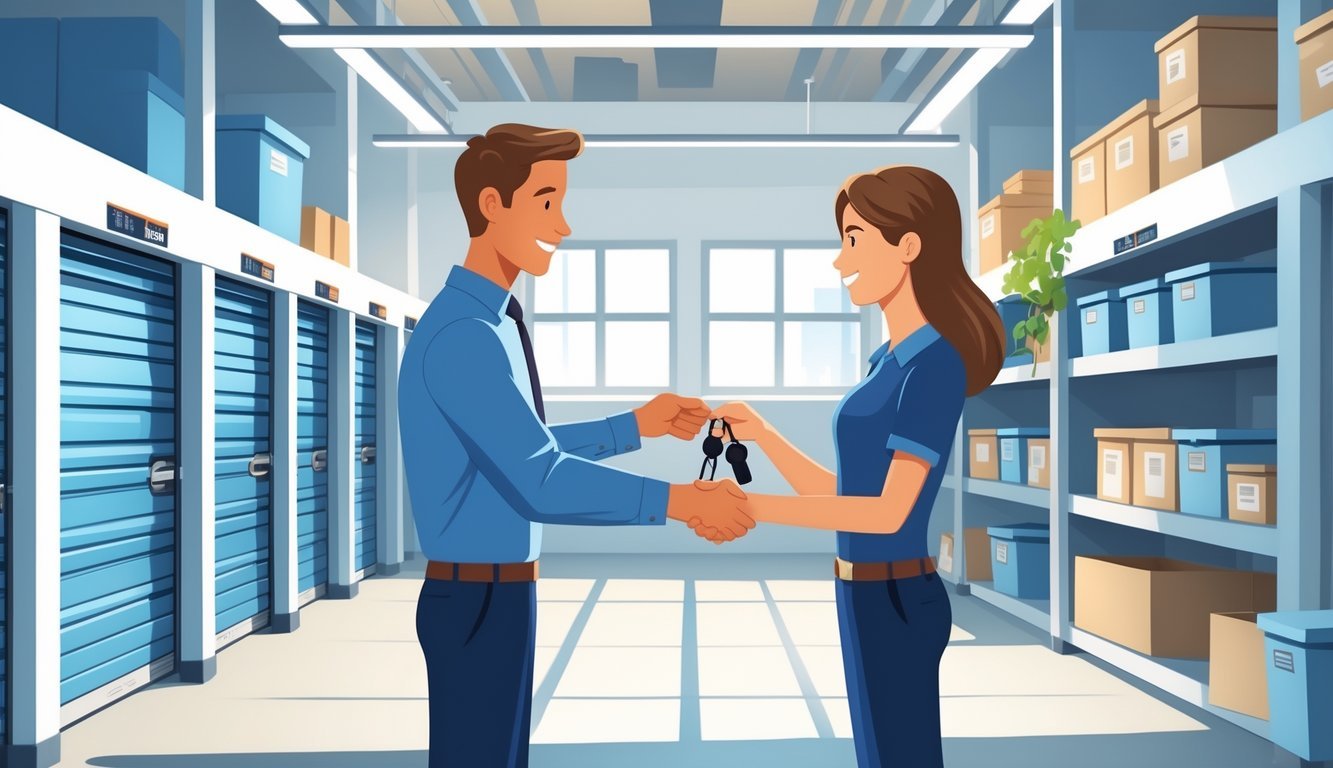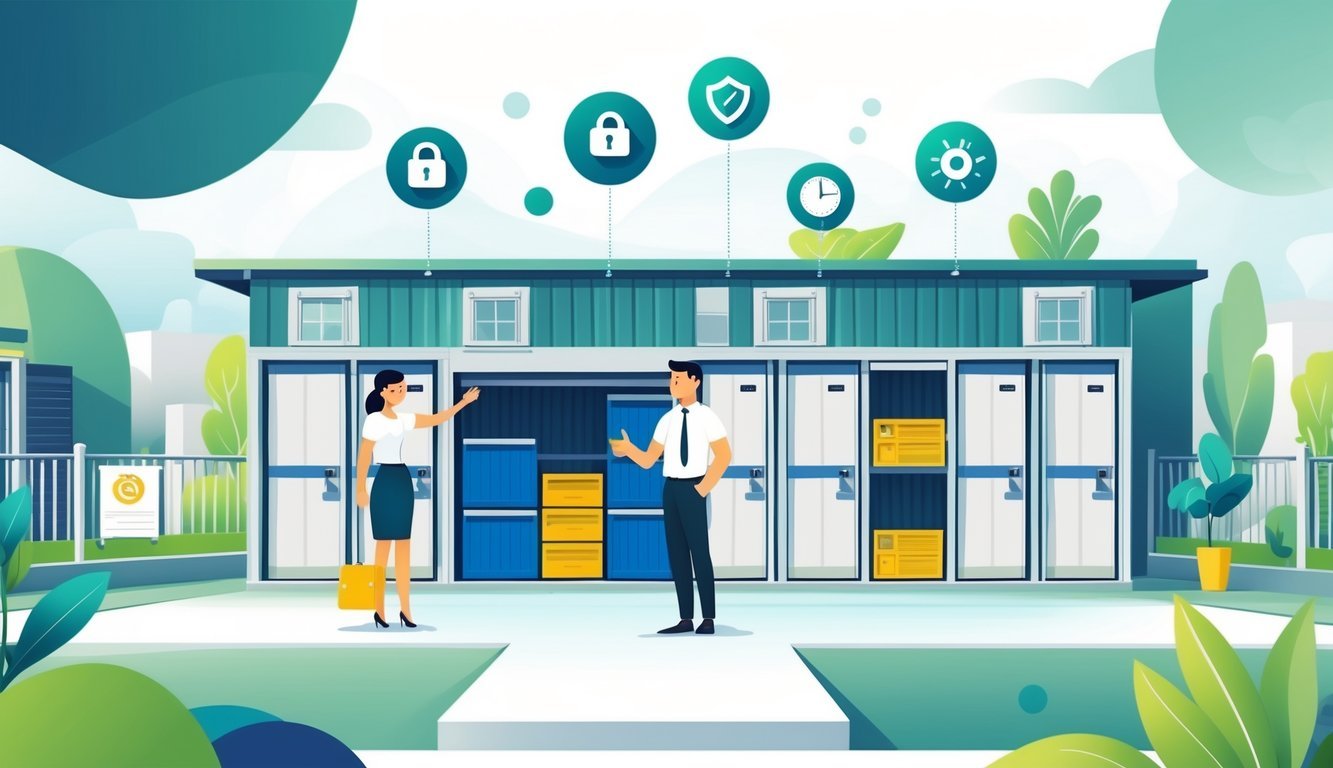PsychNewsDaily Publishers
100 Summit Drive
Burlington, MA, 01803
Telephone: (320) 349-2484
PsychNewsDaily Publishers
100 Summit Drive
Burlington, MA, 01803
Telephone: (320) 349-2484
Unused storage spaces like garages or closets can generate extra income by renting them out. Proper pricing, safety measures, and legal agreements enhance profitability and attract renters.

Got some extra room in your garage, driveway, or even a closet? You can put it to work and earn some money by renting it out. Renting out storage space gives you a way to earn steady income from stuff you already own. People all over the place use apps and websites to connect with folks nearby who need affordable storage.

You really don’t need any fancy skills or a big investment to get started. Just find a spot you’re not using, set a price, and list it online.
This simple approach can bring in extra cash every month, and honestly, it doesn’t take much effort.

You can turn those unused corners—garages, sheds, even a patch of land—into a way to earn a bit more each month. It takes some planning and a little research to make sure your storage space matches what renters want.
Take a walk around your place and look for spots you barely use. Maybe it’s a garage, a shed, an unfinished basement, or just some extra land.
Make sure the space stays dry and feels secure. Renters want their things to be safe.
Measure the area so you know exactly how much room you can offer. Clean, easy-to-access spaces usually attract more interest.
You might need to clear out some clutter or do a few repairs before listing your space.
Think about parking and how renters will access the storage. If you can offer a private garage or shed, you might be able to charge more than if you’re sharing space.
Self-storage units come in all sorts of sizes, so you’ll want to figure out what you can actually offer. Small units can fit boxes or a few chairs, while bigger ones could hold bikes or appliances.
Maybe you’ll rent out part of your garage, or maybe you’ll set up a separate unit in your yard. Just make sure you’re clear about what renters can store and any house rules you have.
Consider adding perks like 24/7 access, sturdy locks, or even a light inside the unit. These little extras can make your spot more attractive—and let you bump up the price a bit.
Here’s a quick chart to help you decide on unit sizes:
| Unit Size | Typical Items Stored | Space Needed (sq ft) |
|---|---|---|
| Small | Boxes, small furniture | 25-50 |
| Medium | Furniture, appliances | 50-100 |
| Large | Vehicles, large furniture | 100+ |
If you know your options and get your space ready, you’ll set yourself up for a smooth start.

When you rent out storage space, you need to pay attention to legal stuff, safety, ways to boost your income, and how you’ll handle different rental timelines. Each part really matters if you want things to run smoothly and make a profit.
Before you hand over your keys, check out your potential renters. This helps you avoid headaches like unpaid rent or someone using your space for sketchy stuff.
Ask for ID or even do a basic credit check if you want peace of mind.
Write up a clear rental agreement. Spell out the rules, payment terms, and how long renters can keep their stuff in your space.
A written contract protects both sides and cuts down on confusion.
Check your local laws and zoning rules. Some areas require permits or have restrictions on what you can store.
If you know the legal side, you’ll avoid fines or other problems.
Your renters want to know their things are safe. Put up good lighting and use strong locks or keypad entry.
Install cameras if you can, especially in common areas or entrances.
Keep everything clean and fix problems fast, like leaks or pests. If renters trust your space is safe, they’ll stick around and pay on time.
Set clear rules about what people can store. You don’t want fire hazards or anything dangerous that could mess up your place.
Offer different unit sizes to bring in more renters. Lots of people just want a small space, but bigger units can earn you more each month.
Automate payments and rentals online if you can. This saves you time and helps you get paid faster.
Sell small extras like locks or moving supplies on-site. Offer insurance options for renters’ stuff if you want to make a bit more.
These add-ons can really boost your earnings.
Give renters some flexibility with how long they can stay. Some people need space for a few weeks, others want to store things for a year or more.
Long-term renters usually mean steady income. Offer discounts or perks for folks who sign longer leases.
Make sure your contracts clearly state how long the rental lasts and any fees for leaving early.
Stay in touch with your renters about payments and their plans. Good communication helps you avoid late payments and keeps everyone happy.

Renting out your extra storage space can bring in steady income, but there’s a lot to think about. You’ll need to know about costs, pricing, legal rules, taxes, insurance, and how to get the most out of your space.
You might spend a little up front to clean or fix up your space. There are also ongoing costs, like utilities, maintenance, or maybe advertising.
Don’t forget about possible fees for permits or inspections if your city requires them.
Money you earn from renting out storage is usually taxable. Keep good records of what you make and what you spend.
Some costs, like repairs or upgrades, might be tax-deductible. It’s a good idea to talk with a tax professional so you know what to report.
Check out similar storage rentals near you to see what they charge. Think about your space size, location, and any special features like security or climate control.
A fair price helps you find renters without leaving money on the table.
Always check local zoning laws and city rules. Some places don’t allow storage rentals, or they might want you to get a permit.
Put everything in writing. Rental agreements should spell out rules and responsibilities so everyone’s protected.
Keep your space clean and secure—renters notice these things. Good lighting and easy access can make your spot stand out.
List your space online and ask happy renters to spread the word.
Your homeowner’s insurance probably won’t cover damages or theft if you’re renting out storage space. It’s a good idea to ask your insurance agent about adding coverage or maybe even getting a separate policy.
You might also want to suggest that renters insure their own stuff for extra peace of mind.